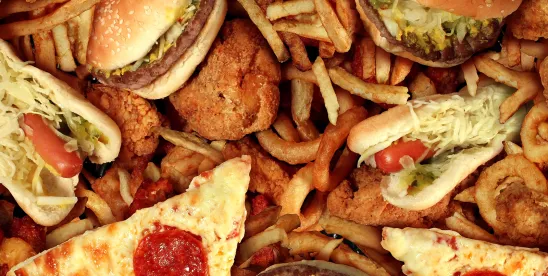The UK Government has delayed the implementation of the Advertising (Less Healthy Food Definitions and Exemptions) Regulations 2024 (“Regulations”), which were due to come into force on 1 October 2025, in order to explicitly exempt ‘pure brand’ advertising from the Regulations. The Regulations will now come into force on 5 January 2026. However, despite this delay, advertisers and broadcasters have voluntarily committed to complying with the restrictions from 1 October 2025 (as originally planned).
In a letter addressed to the Government, representatives from the advertising industry stated their commitment not to run ads for specific, identifiable less healthy food or drink products. The letter was signed by key advertising bodies, such as the Advertising Association, ISBA, the IPA and IAB. The letter was also signed by major media organisations and broadcasters, including Channel 4, ITV, Sky and Reach plc, along with the Food and Drink Federation.
The Regulations will impose new restrictions banning ads for “identifiable” food and drinks that are high in fat, salt or sugar (“HFSS”) from being shown on TV before 9pm in the UK or at any time in online paid-for advertising. The aim of the Regulations is to reduce the exposure of HFSS marketing to children by restricting such advertising, with the forthcoming change following numerous governmental commitments regarding HFSS restrictions over the past few years.
What restrictions will be introduced?
The restrictions being introduced include:
- a 9pm watershed for “identifiable” less healthy food and drink advertising on TV. This will also include all on-demand programme services (“ODPS”); and
- the introduction of a complete ban on paid-for less healthy food and drink advertising online, including on non-Ofcom regulated ODPS.
The Regulations will apply to businesses involved or associated with the manufacture or sale of “less healthy” food or drink with 250 or more employees (which includes franchises) who pay to advertise HFSS products. Only HFSS products that are “identifiable” will be regulated.
Which products are covered by the Regulations?
HFSS products within the scope of the Regulations are those:
- falling within one of the 13 product categories in the schedule to the Regulations;[1] and
- scoring at least a certain number of points under the relevant Nutrient Profiling Model technical guidance .
To help businesses understand the types of products that may fall outside the scope of the Regulations, Department of Health and Social Care (“DHSC”) guidance provides a list of non-exhaustive exemptions (e.g. neither dried fruit snacks nor garlic bread are HFSS products).
There are also numerous exempt products that are already subject to separate regulations, which include (among others) infant formula, total diet replacement products, meal replacement products (which use an approved health claim) and food for special medical purposes.
Enforcement
The Regulations will be enforced by the Advertising Standards Authority (“ASA”) and Ofcom. Non-compliant businesses could face the following (among others):
- enforcement notices and corrective action;
- consumer and competitor complaints;
- financial penalties where the business makes serious breaches; and/or
- reputation damage, which may be incurred as result of the ASA (and the press) publicly reporting on any non-compliance.
Pure brand advertising
‘Pure brand’ advertising refers to advertising that focuses on promoting a brand’s overall identity and recognition, rather than specific product features or promotions. However, the ASA considered that it was not clear whether pure brand advertising was caught within the scope of the restrictions or not.
Following this, the DHSC published a number of statements to clarify its position regarding pure brand advertising. Ashley Dalton, Parliamentary Under-Secretary of State for Public Health and Prevention, stated on 22 May 2025 that “the Government intends to make and lay a Statutory Instrument (SI) to explicitly exempt ‘brand advertising’ from the restrictions. The SI will provide legal clarification on this aspect of the existing policy, as it was understood and agreed by Parliament during the passage of the Health and Care Bill. This will enable the regulators to deliver clear implementation guidance and mean that industry can prepare advertising campaigns with confidence”.
As such, businesses can still promote their brands insofar as any ads do not identify less healthy products and be exempt from the restrictions.
Next steps
With only months until the restrictions are introduced, businesses within the food and drink sector and those supplying them (such as advisors, agencies and consultancies) should familiarise themselves with the new advertising obligations and assess current product compliance using the nutritional scoring to determine how impacted they will be. With the ASA shaping its guidance so regularly, businesses should monitor updates to proactively ensure that they are keeping abreast of any developments. Businesses may also want to consider adapting their marketing strategy to promote healthier products or reformulating certain products so that they are no longer deemed “less healthy” and caught by the restrictions.
[1] These products include (among others): soft drinks (category 1); savoury snacks (category 2); breakfast cereals (category 3); confectionary (category 4); ice cream/lollies (category 5); cakes and cupcakes (category 6); sweet biscuits and bars (category 7); “morning goods”, which includes pastries and pancakes (category 8); desserts and puddings (category 9); sweetened yoghurt (category 10); pizza (category 11); chips and wedges (category 12); and ready meals, products ordered from a menu that are intended to be consumed as complete meal, breaded or battered seafood or meat product and sandwiches (category 13).
The authors wish to thank Royce Clemente for his contribution to this post.






 />i
/>i

